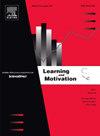Predicting learner autonomy through AI-supported self-regulated learning: A social cognitive theory approach
IF 1.8
4区 心理学
Q3 PSYCHOLOGY, BIOLOGICAL
引用次数: 0
Abstract
As artificial intelligence (AI) becomes increasingly integrated into education, its influence on learner autonomy through self-regulated learning warrants investigation. This study examined the predictive role of AI tool usage on learner autonomy, mediated by self-efficacy, metacognitive strategies, and self-monitoring, among university students. Grounded in Social Cognitive Theory, structural equation modeling was used to analyze data from validated self-report questionnaires. Results showed that AI tool use significantly influenced learner autonomy, both directly and indirectly through psychological resources. The findings suggest that effective AI integration should not only provide technological support but also foster students’ self-regulatory capacities, contributing to the design of educational environments that encourage autonomous learning.
通过人工智能支持的自我调节学习预测学习者自主性:一种社会认知理论方法
随着人工智能(AI)越来越多地融入教育,它通过自我调节学习对学习者自主的影响值得研究。本研究考察了人工智能工具的使用对大学生学习自主性的预测作用,以自我效能感、元认知策略和自我监控为中介。本研究以社会认知理论为基础,采用结构方程模型对自我报告问卷进行数据分析。结果表明,人工智能工具的使用通过心理资源直接和间接地影响了学习者的自主性。研究结果表明,有效的人工智能集成不仅应该提供技术支持,还应该培养学生的自我调节能力,有助于设计鼓励自主学习的教育环境。
本文章由计算机程序翻译,如有差异,请以英文原文为准。
求助全文
约1分钟内获得全文
求助全文
来源期刊

Learning and Motivation
Multiple-
CiteScore
2.90
自引率
0.00%
发文量
53
期刊介绍:
Learning and Motivation features original experimental research devoted to the analysis of basic phenomena and mechanisms of learning, memory, and motivation. These studies, involving either animal or human subjects, examine behavioral, biological, and evolutionary influences on the learning and motivation processes, and often report on an integrated series of experiments that advance knowledge in this field. Theoretical papers and shorter reports are also considered.
 求助内容:
求助内容: 应助结果提醒方式:
应助结果提醒方式:


